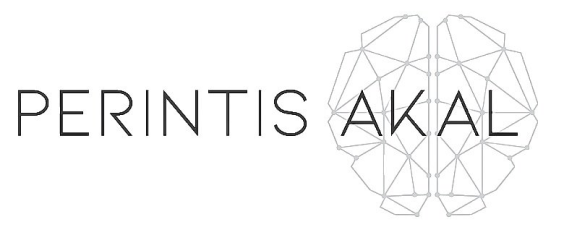Popular science educator and children’s show host, Bill Nye, appeared on Last Week Tonight Sunday on May 12, 2019 to deliver an extremely blunt and expletive-laden message to hammer in the point that climate change has very real, very dire consequences. By the end of this century, if carbon emissions keep rising, the average temperature could rise another 4 to 8 degrees, or as Nye put it, “the planet’s on [expletive] fire.”[1] Dire warnings aside, Nye’s message is meant as a rallying call to spur countries and companies alike to action: the world is out of time, so what are we going to do about it?
Malaysia’s struggle with climate change
Malaysia positioned itself within the global climate change debate as early as 1992. When Prime Minister Mahathir Mohammad addressed the Rio Earth Summit then and spoke about the concerns of developing countries having to cut back on development to be more environmentally sustainable, he also advocated Malaysia’s willingness to play its part by signing international environmental agreements and pledging to keep 50% of its total forest cover.
However, domestically, these international agreements were not robustly supported by national policies. The question of environmental protection was – and still is – a sensitive issue in Malaysia as part of a larger debate over resource allocation. Malaysia is still a developing country that depends heavily on its natural resources to fuel development and economic performance. Many business groups still pursue profit over sustainability and the need to adhere to environmental policy, but this trend is seemingly changing today. Investors are increasingly focused on sustainable business strategies and pushing businesses to integrate sustainability into their core business strategy.[2] The challenge ahead is turning this talk into big, fast results.
Towards a results-based sustainability agenda
 The reality we face is that addressing climate change isn’t going to be free or easy; it will take making some very tough choices every day for things to change. As the debate over the Green New Deal rages in the US, other countries are beginning to push their versions of a new green agenda.
The reality we face is that addressing climate change isn’t going to be free or easy; it will take making some very tough choices every day for things to change. As the debate over the Green New Deal rages in the US, other countries are beginning to push their versions of a new green agenda.
And the good news is, governments will not be fighting the good (green) fight alone as companies have also started to incorporate more sustainable habits into office culture and business practices.
The team at PEMANDU Associates have always been driven to address one main question when embarking on any transformational journey with our clients – how can we deliver the biggest results, in the shortest period of time? Why the haste? Because the time we spend with each client is limited, but also because big problems often require radical changes. And this should be no different when it comes to climate change. Governments and companies alike can benefit from a results-oriented approach to their respective efforts to perpetuate the green agenda. All this begins with setting a clear true north.
The game of the impossible
PEMANDU Associates believes that real transformation begins with setting an ‘impossible’ target or what we call ‘the game of the impossible. We encourage our teams and clients to shoot for the stars because even if they miss, they’ll at least land on the moon. Once the target is set, the next step is to plan a detailed action plan, prioritising the initiatives that would move the needle quickly.
In the context of climate change, the game of the impossible has already been set: stop global warming. The ‘how’ has already been answered in two international agreements. The Paris Agreement sets the goal of keeping the global average temperature to below 2°C above pre-industrial levels. The UN Sustainable Development Goals (SDGs) created a blueprint that addresses 17 goals targeting everything from responsible consumption to protecting life on land and below water.
Several Malaysian-based companies have made great strides in using the SDG blueprint to guide their business practice towards a more sustainable future. One of them is conglomerate Sunway Group which issued its first sustainability report in 2011, disclosing the company’s performance on economic, social and environmental issues, and has since publicly adopted the SDGs into company policy and public relations. As a conglomerate focusing on property development, one of the goals that Sunway focuses on is Goal 11, building sustainable cities and communities, which has resulted in its flagship township being branded a green, low-carbon city – a first in Malaysia.
Another is DiGi, Malaysia’s telecommunications giant which has committed itself to minimising its carbon footprint following Goal 12, responsible production and consumption. Its climate strategy focuses on energy efficiency as a way to manage the use of natural resources and balance growth with sustainability. Conscious of the growing amount of e-waste, DiGi has set a target to achieve 100% recycling rate of decommissioned electrical and electronic equipment to be disposed of safely by licensed vendors.
Track. Review. Tweak. Repeat.
In light of an ever-changing landscape, organisations need to adopt an attitude of what we call ‘recursive problem solving’ – this means having the self-awareness to know what is working, what isn’t and what measures can be put in place to turn things around. To do this requires frequent validating and verifying of results. Keeping track of data and results, whether by the organisation or a third party, will measure how close we are to the true north.
For businesses who are committed to becoming more environmentally sustainable, this is already being done though sustainability reporting, which has been made mandatory for all Malaysian businesses since October 2015. Countries, however, are not obliged to make such reporting public. The UN has set up a voluntary review mechanism as part of the SDG agenda and have encouraged countries to conduct regular and inclusive reviews of progress done as a way to keep track of what has been done so far. However, this process is optional and, in a way, detracts from the momentum created by the blueprint.
There also needs to be a way to track the overall effect that these sustainable development initiatives have had. Currently, there is no mechanism that tracks the overall progress made on the environment as a whole and it is difficult to know whether these changes are making a difference. Without being able to see the overall progress, it is easy to get disillusioned and de-motivated to make those hard choices that climate change action so desperately needs. If we can track how even a small change – like for a business to go paperless or for a family of three to change to a zero-waste lifestyle – contributes to preventing the increase of carbon emissions, we can expect to see a lot more buy-in from companies and communities alike.
Making the tough choices for a greener world
 In October 2018, the United Nations (UN) Intergovernmental Panel on Climate Change released a report detailing how limiting global warming to just 1.5°C could make a life-or-death difference in the next few decades for people and ecosystems everywhere. While the report states that the 1.5°C target is possible within the laws of chemistry and physics, it also noted that to do so will require unprecedented changes which are unlikely to happen given today’s political climate.
In October 2018, the United Nations (UN) Intergovernmental Panel on Climate Change released a report detailing how limiting global warming to just 1.5°C could make a life-or-death difference in the next few decades for people and ecosystems everywhere. While the report states that the 1.5°C target is possible within the laws of chemistry and physics, it also noted that to do so will require unprecedented changes which are unlikely to happen given today’s political climate.
Sustainability is more than just CSR or a philanthropic exercise; it means creating long-term value by considering how we live and, will continue to do so, in the wider ecological, social and economic environment. Bill Nye reminds us that the climate is changing and it’s our fault – time to get to work on this. We are already halfway there; the impossible goal has been set and we have (several) roadmaps ready to go. Right now, implementation is on-going but slow in some areas.
Fighting climate change will require everyone to make some tough choices. But the good news is that with the right structured approach in place, we can be better equipped to stay the course towards the end goal of creating a sustainable and green world.






